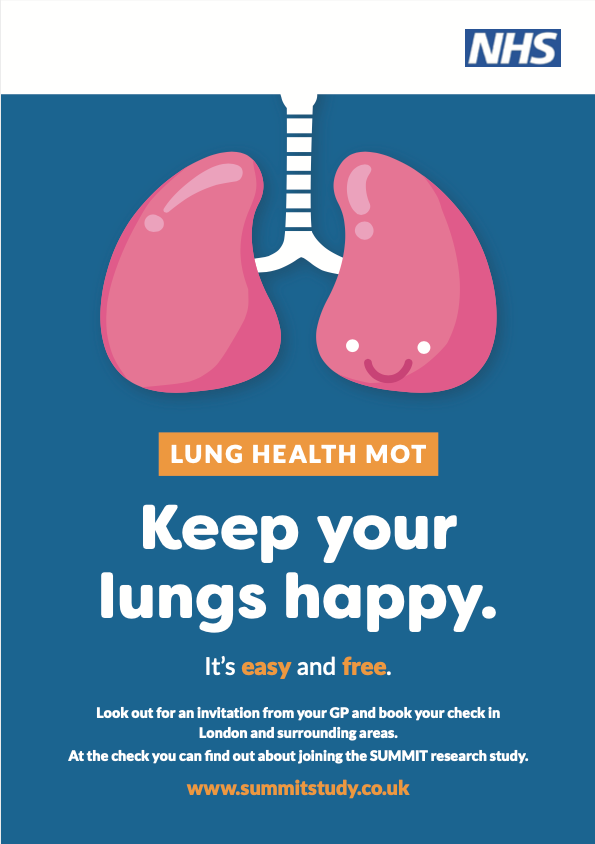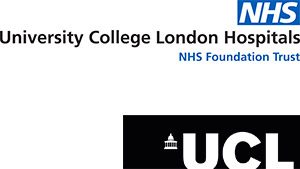Detect Early. Treat Early.
Let’s Tackle Lung Cancer
About The Study
The earlier that cancer is found, the better the chance of successful treatment and survival. The SUMMIT Study will involve 25,000 Londoners to help improve how we screen for cancer.
The SUMMIT Study’s goals are to:
- Develop and evaluate a new blood test for detecting multiple types of cancer early.
- Detect lung cancer earlier amongst at-risk Londoners and examine the feasibility of a large-scale lung screening programme in England.
Early Detection
When found early, cancer is more likely to be treated successfully. With better treatment options, the chance of survival is greater.
Screening helps find cancer earlier. However, many types of cancer are still being detected in later stages, when treatment options are more limited and less successful. Our hope is that the SUMMIT Study will help develop a blood test that detects multiple types of cancer early, so that more people affected by cancer can live longer, healthier lives. SUMMIT also aims to detect lung cancer earlier amongst at-risk Londoners and examine the feasibility for a large-scale lung screening programme in the UK.
Lung Cancer Screening
People who smoke or who smoked regularly in the past are at increased risk for lung cancer. If lung cancer is caught early, treatment can be more successful. Prior clinical studies have shown that screening people at increased risk using low dose computed tomography (LDCT) chest scans saved lives by detecting cancer in earlier stages.1 As part of the SUMMIT Study, participants with a significant smoking history will receive LDCT scans.
[1] National Lung Screening Trial Research Team, Aberle D.R., Adams, A.M, et al, Reduced lung-cancer mortality with low-dose computed tomographic screening. N Eng J Med. 2011;365:395-409.

For Healthcare
Professionals
The SUMMIT Study is one of the largest genomic research programmes ever to be conducted in the UK. One of its goals is to develop and evaluate a novel blood test for the early detection of multiple types of cancer.
The study will enrol people who currently smoke or have smoked regularly in the past. By inviting eligible people to participate, GPs can help support this important effort with minimal impact on their practice workflow. Please see our 5 minute information film for healthcare professionals for more information.



